PHOTO: unknown Death was not Gods doing, he takes no pleasure in the extinction of the living. To be for this he created all; the worlds created things have health in them, in them no fatal poison can be found, and Hades holds no power on earth; for virtue is undying. Wisdom 1:13-15
Death was not Gods doing, he takes no pleasure in the extinction of the living. To be for this he created all; the worlds created things have health in them, in them no fatal poison can be found, and Hades holds no power on earth; for virtue is undying. Wisdom 1:13-15
Taken from today’s afternoon reading (None)
Yesterday, I shoveled the driveway twice. After working from one end to the other, I looked toward the garage where I had started and saw already another inch had accumulated there. Snow stopped sometime during the night and this morning the white stuff is sparkling under bright sunlight. Even the streets are white, an indication of temperatures too cold for salt to do its work.
Perhaps this verse from Wisdom was more striking being read in the midst of winter. The words made me think of lush spring and early summer when blooms stand atop thick green stems that snap and ooze sappy juice if they are broken. Creation is “juicy” with what sustains it flowing through xylem and phloem, arteries and veins.
And spirit. Or soul. Or whatever we name that which holds the Divine spark that animates us and feeds our deepest selves. God has created everything “To Be…” as the reading reminds us, to be with vitality in every cell.
Yet, we know, winter comes and flowers wither and die. Spirits, too, dry up in the face of life’s challenges and natures fickleness. Too much or too little water. Earth’s crust splits to accommodate tectonic plates’ restless jumps and dives as they shoulder one another to get comfortable.
Winds change, drive fires, and send frigid temperatures flying around the globe.
We see death as much as life when we look around. Where is this “health” God has put in every created thing? Where can a war orphan look to see it? Or those suffering from drought or driven from their homes by flood? Where is God-given “health” found in a body ravaged by cancer or a mind clouded by Alzheimers? What has happened to the mental health of a young man who walks up to a congresswoman and shoots her in the head?
So, where is this “health” unconquerable by death and hell?
I am reminded of the last stanza in Gerard Manley Hopkins’ poem, “God’s Grandeur”
“And for all this, nature is never spent;
There lives the dearest freshness deep down things;
And though the last lights off the black West went
Oh, morning, at the brown brink eastward, springs —
Because the Holy Ghost over the bent
World broods with warm breast and with ah! bright wings.”
God’s own Self is the oozy sap that gives us life. The Creator’s Grace enables our spirits to survive whatever befalls us. Our bodies, as amazing as they are, eventually succumb to age, disease, or harm. But what is essential, the “dearest, freshness deep down things” will live to give glory to the One who put it there.
© 2011 Mary van Balen

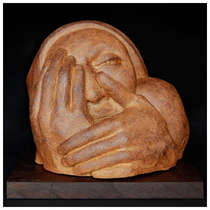
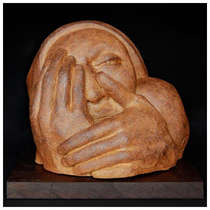
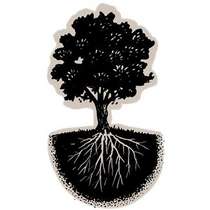
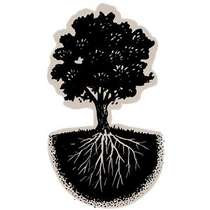
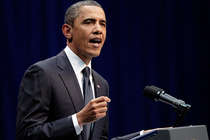
 There is a river whose streams make glad the city of God,
There is a river whose streams make glad the city of God,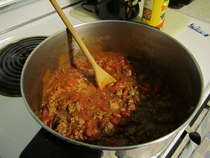
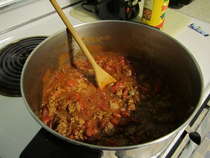 “Getting ready for the snow storm?” I asked as I handed the customer her bag of Cuddle Duds long johns.
“Getting ready for the snow storm?” I asked as I handed the customer her bag of Cuddle Duds long johns. 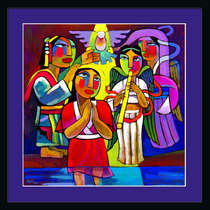
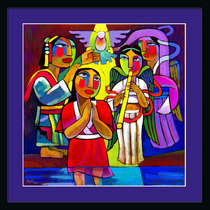 As soon as Jesus was baptised he came up from the water, and suddenly the heavens opened and he saw the Spirit of God descending like a dove and coming down on him. And a voice spoke from heaven, This is my Son, the Beloved; my favour rests on him. Mt 3, 16-17
As soon as Jesus was baptised he came up from the water, and suddenly the heavens opened and he saw the Spirit of God descending like a dove and coming down on him. And a voice spoke from heaven, This is my Son, the Beloved; my favour rests on him. Mt 3, 16-17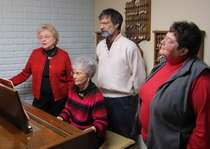

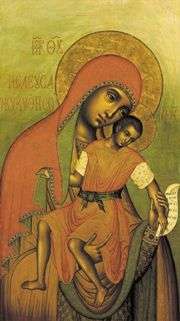
 The shepherds hurried away to Bethlehem and found Mary and Joseph, and the baby lying in the manger. When they saw the child they repeated what they had been told about him, and everyone who heard it was astonished at what the shepherds had to say. As for Mary, she treasured all these things and pondered them in her heart. And the shepherds went back glorifying and praising God for all they had heard and seen; it was exactly as they had been told. Lk 2, 16-20
The shepherds hurried away to Bethlehem and found Mary and Joseph, and the baby lying in the manger. When they saw the child they repeated what they had been told about him, and everyone who heard it was astonished at what the shepherds had to say. As for Mary, she treasured all these things and pondered them in her heart. And the shepherds went back glorifying and praising God for all they had heard and seen; it was exactly as they had been told. Lk 2, 16-20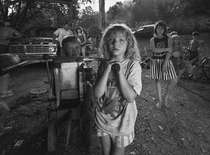
 I weep and my eyes dissolve in tears, since the comforter who could revive me is far away. My sons are in despair, the enemy has proved too strong. Mid-morning reading Lamentations 1:16
I weep and my eyes dissolve in tears, since the comforter who could revive me is far away. My sons are in despair, the enemy has proved too strong. Mid-morning reading Lamentations 1:16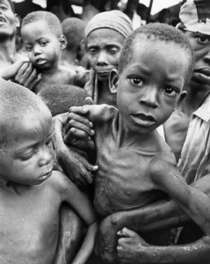 Perhaps my discomfort with this feast has more to do with my unintentional complicity in the poverty cycle in my own country than with the plight of young boys 2,000 years ago. What can I change? How can I live in a way that does not contribute to the suffering of Holy Innocents in my own time and place? What can I do to contribute to the solution?
Perhaps my discomfort with this feast has more to do with my unintentional complicity in the poverty cycle in my own country than with the plight of young boys 2,000 years ago. What can I change? How can I live in a way that does not contribute to the suffering of Holy Innocents in my own time and place? What can I do to contribute to the solution?
